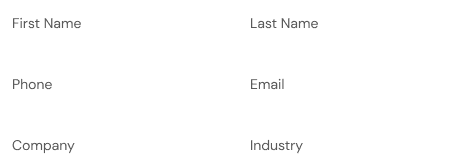
Humans of Remotify: Cris thrives in a full-time remote career as a Talent, People and Culture Specialist
Freelancing has many opportunities and advantages, but it isn’t always the right solution for an individual.
The gig economy has its advantages and disadvantages, both for individual freelancers and organisations partnering with contract workers. The gig economy involves the exchange of labour and services through digital platforms and operates flexibly, actively facilitating the matching between buyers and sellers.
Leveraging the gig economy enables businesses to minimise costs and expenses while increasing output production as freelancers enjoy a flexible working schedule. Meanwhile, freelancing in the gig economy allows individuals to have independence and autonomy over their schedule and workload.
However, it’s also important to consider the drawbacks of operating in the gig economy. Because freelancers typically handle multiple clients and projects at a time, they may not be as invested in the growth and success of an organisation as a full-time employee would be; this could manifest in the output being delayed or a lack of accountability for poor quality.
There’s also still a lack of regulation in the gig economy, so there are numerous ethical issues at play, such as the lack of social and employment benefits for workers. Misclassifying freelancers (i.e. categorising an individual as a freelancer when they fulfil the role and responsibilities of a full-time employee) can also have legal ramifications for an organisation.
These drawbacks impact the way freelancers work and live their lives. As independent contractors, freelancers are not considered employees of an organisation, so a company is not required to provide benefits or competitive wages. This means freelancers also shoulder all their personal expenses, such as the maintenance and upkeep of their work equipment.
The gig economy can be rewarding if you’re looking to increase your existing streams of income, but freelancing can be exhausting and overwhelming when it’s your primary livelihood.
This is definitely something that Cris Liloc struggled with for some time. Before finding Remotify, she worked as a freelancer for five years since 2018. She gradually realised that it was not the long-term career path she wanted to take for herself, especially since she is a working mother.
“Working freelance or remotely offers many advantages but they come at a cost that affects my career life. As Filipinos, we are required to receive employment benefits as per the labour law, but when you are freelancing, you’re not entitled to those as you are not directly employed under a company,” Cris shared.
When freelancing becomes a hindrance, not an opportunity
The lack of employment benefits is just one of the downsides of freelancing. The flexibility that comes with working in the gig economy comes with many hidden costs. Chief among them is the lack of stability and assurance in the incoming projects they receive.
In Cris’s case, the lack of security in freelancing was beginning to take a toll on her finances and personal life.
“As a working mother, having a freelance job gave me the freedom to choose my own hours and work anywhere, however, this flexibility blurred the boundaries between my work and personal life. Under a freelance setup, my income was irregular and contracts were unstable. I had no opportunity to secure a long-term position within a company. It was unpredictable and challenged my plan to budget effectively and led to financial stress,” Cris said.
Many freelancers go into the gig economy because of negative experiences in a traditional workplace. If provided with a great full-time employment package within an ethical organisation that provides a healthy workplace, many freelancers would take the opportunity.
This has considerable implications for countries with a booming gig economy. In fact, the Philippines is experiencing a boom in freelancing as a secondary source of income, but there’s a lack of laws that protect freelancers and contractual workers, which means that they don’t have access to employment benefits that can give them security.
This can negatively impact an individual’s quality of life and career trajectory in the long run when they try to reassess their life goals and work milestones they want to achieve. Freelancers don’t have a sense of belonging and community within an organisation or even the proper HR support. This can affect an individual’s mental health, increasing feelings of loneliness and isolation, especially if they continue freelancing in the long run.
The best of both worlds: full-time remote work
After five years of working in the gig economy, Cris was ready for something different. She wanted a workplace that would still allow her to work remotely, but offer the stability and security that comes with full-time employment.
Upon hearing a good friend’s recommendation about Remotify, Cris signed on with the company without hesitation after seeing how the team worked together.
“Remotify not only offered me a full-time arrangement but also complete employee benefits. They also highlight a career and development program that inspires each employee and aligns their goals in life, which is a game changer for any remote company in the Philippines,” Cris shared.
It’s always important to have the guidance and support of an Employer of Record (EOR) when you’re transitioning from freelancing to full-time employment. An EOR can make sure that international employers are compliant with local labour laws and tax rules and regulations.
Building Leaders: Why Remotify is a great place to work
Remotify was recently certified as a Great Place to Work, demonstrating that it is a company that values people — not only clients but also employees.
“Remotify hits every spot of being a great workplace. The company not only provides excellent service but also advocates good mental health. We are all leaders in our own way. We inspire people, we are a game changer and we take care of each other and make sure that at the end of the day, we are all aligned with our goals,” Cris said.
Remotify thrives in its foundational I.N.S.P.I.R.E. beliefs, which stand for:
- I - Impact - We make our behaviours matter every single day
- N - Natural – We celebrate who we truly are
- S - Simple – We cut out the complicated
- P - Promise – We keep our word
- I - Intelligent - We use our emotions intelligently to do good
- R - Responsible – We own our decisions
- E - Energetic – We bring our best selves to work
This guides every employee within Remotify and allows the entire team to embody the core values of the company.
Enjoying a fulfilling career as a full-time Remotify employee
Including Cris Liloc, Remotify’s workforce currently comprises 66% female employees, demonstrating that Remotify is committed to nurturing diversity, access and inclusion in the workplace.
“I am so grateful to be part of this wonderful and humble team, as they open doors not only for me but also to other working mothers who continue to achieve their career goals while experiencing the best of motherhood. The company practises great inclusion to everyone regardless of their position in life,” Cris shared.
A great workplace can enrich an individual’s life, as Cris realises as she works for and with Remotify. A great workplace allows individuals to elevate their personal and professional lives, enabling them to achieve their goals and enjoy work-life balance.
Partnering with an Employer of Record like Remotify not only benefits the organisation but also employees.
“This job not only helped me to reach and support each individual for certain roles but also made me realise that I could be the bridge for them to achieve their own goals,” Cris said.
It’s possible for freelancers to transition into full-time remote work, especially if they are seeking to make a long-term client into an employer.
As an Employer of Record, we are dedicated to providing high-quality services to our clients while ensuring that employees have fulfilling remote careers. Contact us and we will help you bring your client in as an employer and guide you into transitioning to full-time remote employment.
Jump straight to a key chapter
Spending Too
Much Time
Onboarding?
your remote hiring in the
Philippines, excellently.
Say Goodbye to High Costs!
Request Your Free Consultation Today andSave a Massive 70% on Your Workforce!

Ready to thrive in a remote-first work environment?


